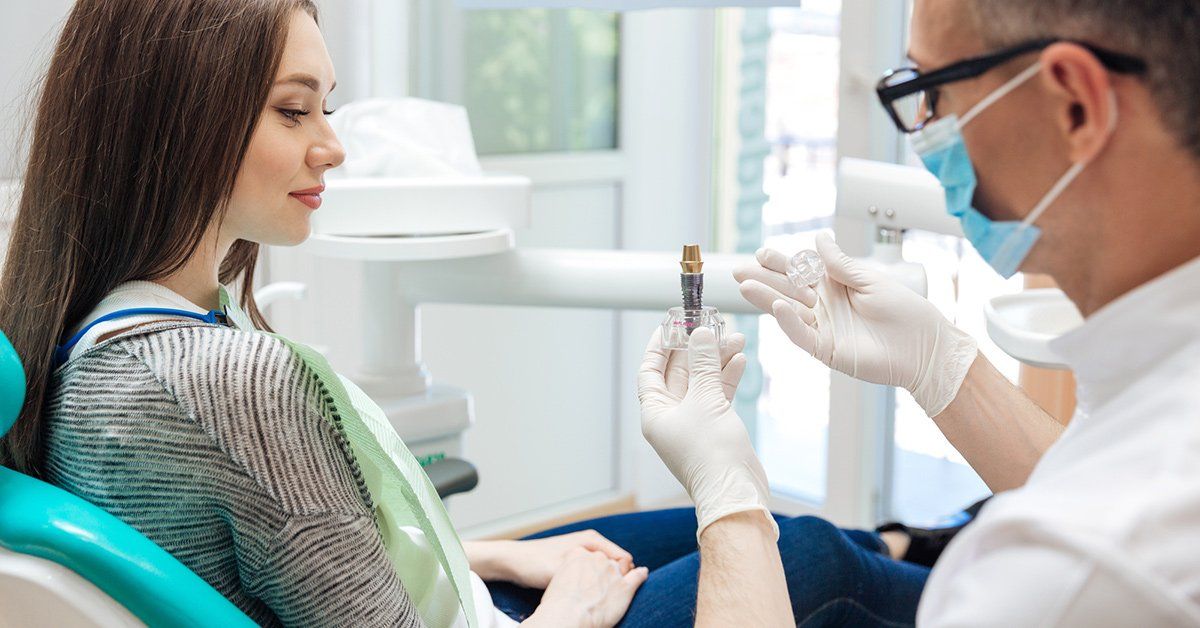What Is Dental Crown | Types Of Dental Crown Procedure Near Me
Did your dentist tell you that it's time for a dental crown? It's actually a simple procedure with results that are worth smiling about. Read more here!
Has your dentist told you that it's time for a dental crown? Not sure what that means?
Well, in any case, the dental crown is a solution to a greater problem, which means it's good for you. However, it's better to be safe than sorry, right?
In this article, we will cover everything you need to know before you get your dental crown.
So if that sounds interesting to you, keep reading to find out more.
Who is In Need of a Dental Crown?
There are many reasons why someone would need a dental crown. If someone has a large enough cavity that is irreparable with a regular filling, they might be in need of a dental crown.
You might also need one if your tooth is weak, cracked, or worn down. Crowns are recommended as a follow-up treatment to a root canal because the tooth needs protection due to its fragility.
You might also need one if you're completely missing a tooth, in which case a dentist will need to put an implant or dental bridge that has to be installed on the crown.
What Are the Types of Dental Crowns?
Dental crowns can be made from a variety of materials, such as metal, zirconia, ceramic, porcelain, composite resin, so on and so forth. For instance, you can even have a ceramic crown that's infused to a metal, instead of an all-zirconia one.
When choosing a material for your crown, your dentist will need to consider some important factors, such as the position of the gum tissue, the location of the tooth, the function of the tooth, how many teeth you need to smile, the color of surrounding teeth, and how much tooth is remaining.
However, personal preference trumps all recommendations, so the choice stands by you.
Beyond material, crowns can also be created and installed in a variety of ways. For example, a temporary crown can be installed for a short period of time. The dentist will install it over a tooth with an adhesive. It will remain on the tooth while your permanent solution is being made.
But single-day crowns also exist. Some dentists can provide a same-day solution via computer-aided manufacturing machines, such as CAM and CAD. The crown will be developed and milled from a block of ceramic right before your eyes.
What Does the Procedure Look Like?
With a regular crown, you will need to visit the dental office twice. Once for the temporary crown and diagnostics, and another time to get the actual crown installed.
Here's the process:
- Tooth examination and preparation. This involves x-rays, molds, and observance.
- Tooth filed down, and the outer layer is removed.
- A new impression created of the surrounding teeth and the trimmed tooth.
- A temporary crown installed over the tooth.
- The impression is sent to the table and the crown is created over several weeks.
- You visit the office once more, and the crown is cemented upon your tooth.
With a single-day approach, you can get everything done on the same day without any hassle.
Here's the process:
- A digital image created of your mouth.
- The scan used to create a 3D model of a crown.
- The crown is manufactured within hours.
- The crown cemented into place, and that's that.
Unfortunately, not all dentists have the ability to do same-day dental crowns. So it's best to ask your dentist if the option is available and what the approximated cost will be, especially if you don't have insurance.
How to Take Care of Dental Crowns
Even though it might seem that cementing them in will make them sturdy, and it certainly does - you still need to take care of them. Care and consideration will extend its longevity, thus making you satisfied for much longer.
Be careful when brushing. If you're not brushing twice a day, it's about time to start. Use toothpaste made for sensitive teeth, because the affected tooth and teeth surrounding it will be sensitive for a little while.
Floss daily to make sure that your teeth are in their best possible condition all day long. Avoid tough foods, as chewing on them might cause the crown to crack, especially if you have porcelain material.
If you clench and grind your teeth often, you will need a night-guard to make sure that your crown and surrounding teeth are protected from damage.
If you have a temporary one, you want to be even more careful, because the adhesive is not as strong as cement. Brush regularly but be very gentle. When flossing, pull from the side off the tooth instead of snapping up, as you might dislodge the crown by accident.
If the temporary one breaks or falls out, call your dentist and get it reglued.
How Long Does a Dental Crown Last?
In general, the longevity of a crown can vary anywhere from 5 to 15 years. Some will be sturdier than others, as that would be the quality of their material.
For instance, the monolithic zirconia material is the toughest, thus it is very unlikely to crack or split. But these estimations use theoretical models, therefore the crown placement and other factors can affect the real-life performance results of the final product.
Most dentists will tell you that gold and porcelain-metal fused materials last the longest. And that all-porcelain or all-ceramic crowns will look the most natural, even though they are not as strong as the former. Composite resin wears down quickly.
In any case, when taken care of, dental crowns can last many years. If you worry about their longevity, speak to your dentist who will help you extend their life expectancy.
Dental Crown Services
Now that you know all that you need to know about the dental crown, you are well on your way to bringing your smile and tooth functionality back to its optimal health.
In any case, whether you decide to get dental crowns or not is completely your choice. But keep in mind that if you're hesitant because you're unsure, it's best to remove the uncertainty by speaking with somebody who knows what they are talking about.
That's why at the Maryland Center for Complete Dentistry in Owings Mills, MD - we offer the best possible complete dental services, including varied-material dental crowns.
If you have any uncertainties, get in touch with us and we will happily accommodate your needs.




